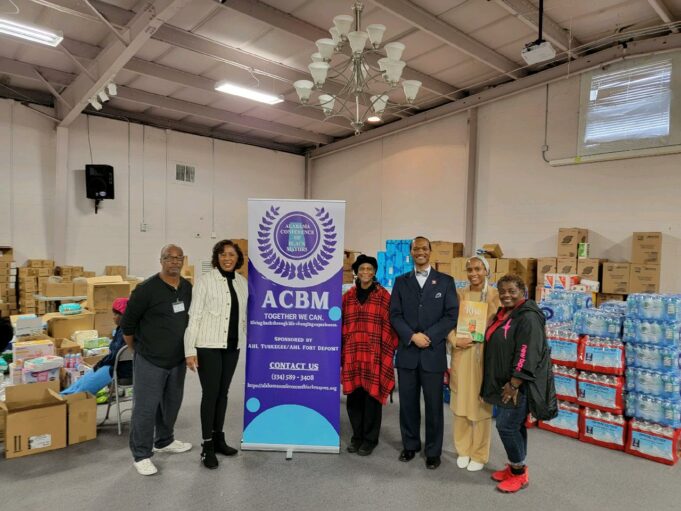by Anisah Muhammad and Azizah Muhammad
The Final Call @TheFinalCall
SELMA, Ala.—Tears flooded the eyes of Selma, Alabama, Mayor James Perkins Jr. as he described the devastation of a recent tornado on WSFA 12, the Montgomery, Ala., NBC affiliate. “It’s tough. A lot of people are hurting. The devastation is real. We got a lot of work to do,” he said.
He explained the area would be without power for a long time, due to power poles being down and other aftereffects of the January 12 storm. The aftermath of the raging storm left residents picking up the remains of damaged homes, cars and businesses of a city best known for its monumental marches and 1960s Civil Rights demonstrations. Selma residents described the recent tornado as “a traumatic experience,” but are certain the historic city will come back “bigger and better.”
People from neighboring cities and states, including the Alabama cities Hoover, Uniontown and Thomasville, traveled to the city to volunteer their time and donate supplies to those still recovering from the storm. The Alabama Conference of Black Mayors, the Southeastern Conference Black Alumni Network and the Safe Haven Center have been assisting in the recovery effort.
After seeing the mayor’s tears, Nation of Islam Southern Regional Student Minister Abdul Sharrieff Muhammad contemplated on words he once heard from the Honorable Minister Louis Farrakhan: “We don’t feel the hurt of our people.” Deciding that it was urgent to take action for Black people, Student Min. Sharrieff Muhammad notified Southern Regional Student Fruit of Islam (F.O.I.) Captain Oliver Muhammad of the plan to travel from Atlanta to Selma to show the residents that members of the Nation of Islam are present to help. Student Captain Oliver Muhammad quickly heeded the call by gathering F.O.I. willing to donate their time and energy to assist.
Student Min. Sharrieff Muhammad traveled to Selma in a loaded truck in advance, on Jan. 20, to survey the damage in the city. Meanwhile, the F.O.I. delivered word to husband-and-wife duo Craig X and Sherrie X, owners of a larger, 53-foot trailer truck.
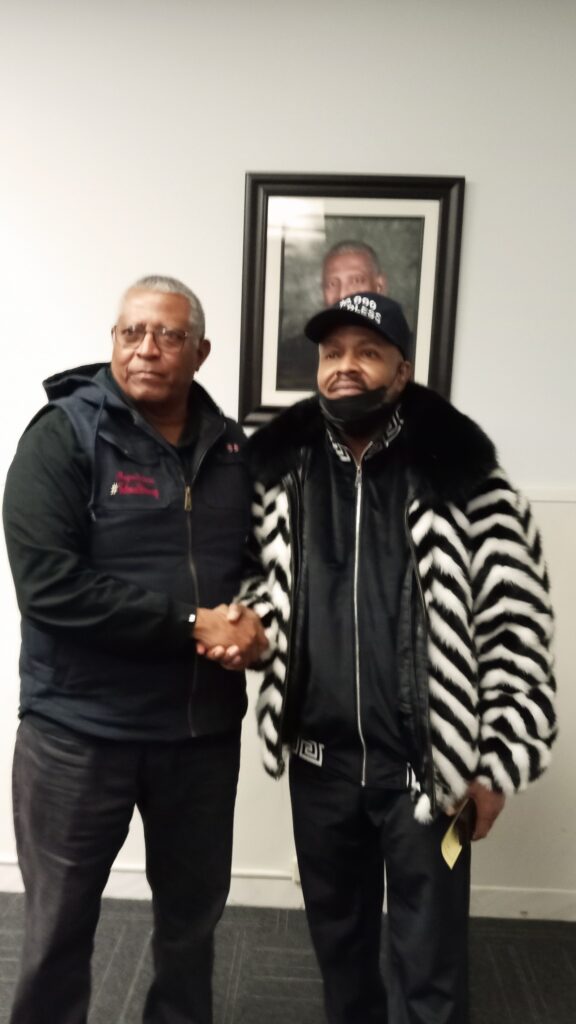
Selma Mayor James Perkins Jr. shakes hands with Nation of Islam Southern Regional Student Minister Abdul Sharrieff Muhammad.
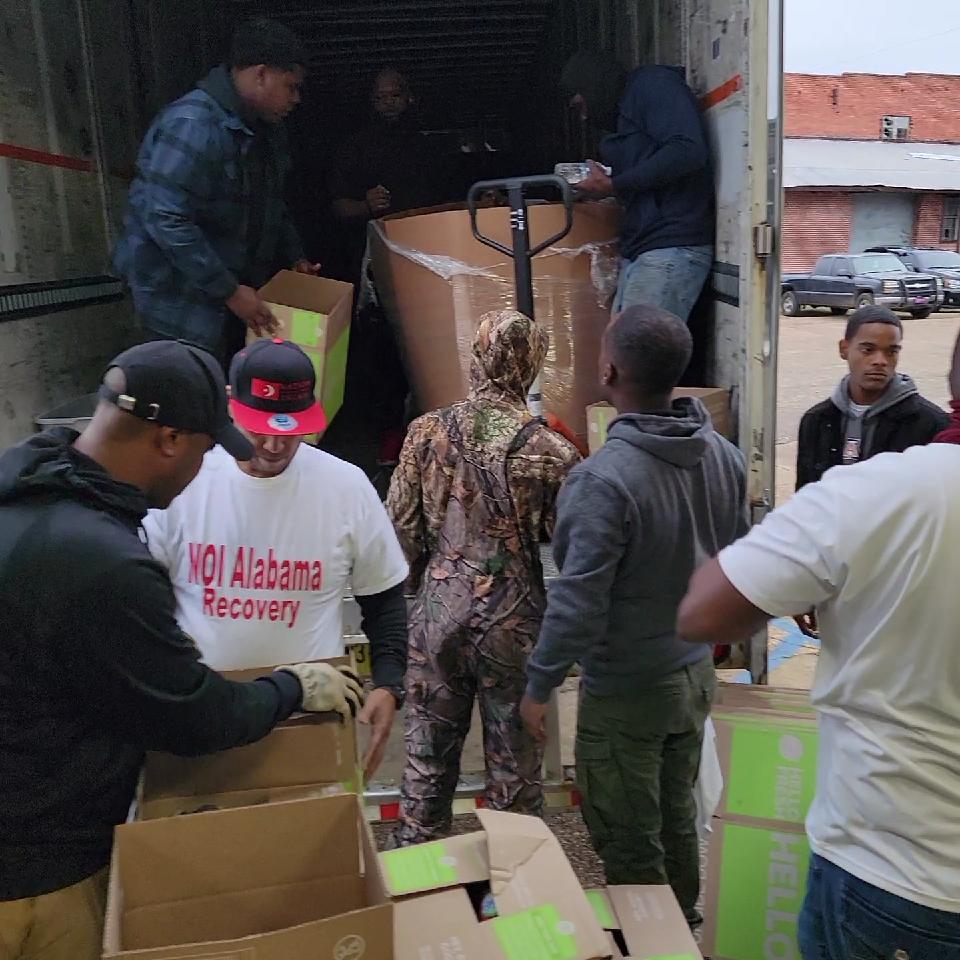
Student Minister James Muhammad of Muham
mad Mosque No. 69 in Birmingham, Ala., and other F.O.I. unload truck of supplies.
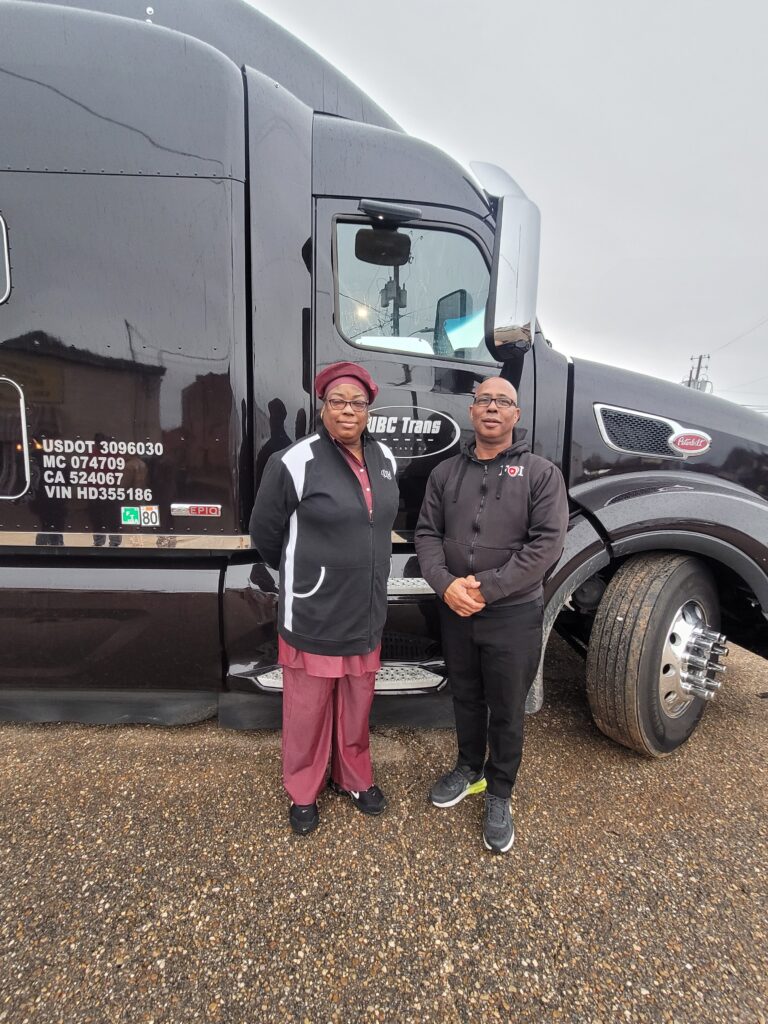
Husband and wife, Brother Craig X and Sister Sherrie X, drove a 53-foot trailer truck to Selma, Ala., to deliver food and supplies after a recent tornado damaged homes, cars and businesses.
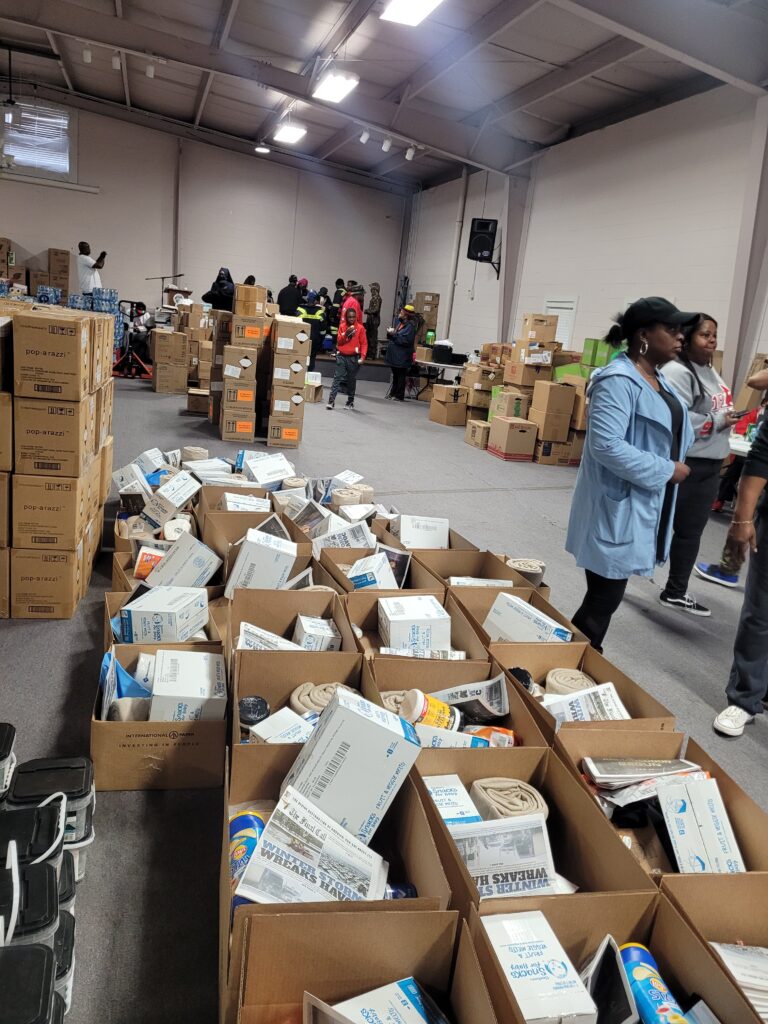
Community members and volunteers pack
boxes for Selma residents in need.
“We’re here in Selma helping to move some water and whatever clothing and different things that people needed here,” Brother Craig X said to The Final Call.
On Jan. 21, he drove the truck, loaded with personal hygiene products, water and food, to Selma for residents in need. His wife expressed the need for Black people to help one another not just in times of disaster.
“We do what we can to help our brother and our sister, whatever that may be. Driving this truck here, delivering goods so they didn’t have to pay out of pocket to have the goods delivered and just basically taking care of our own,” she said.
Believers from various parts of the Nation’s Southern Region, including Student Minister James Muhammad of Muhammad Mosque No. 69 in Birmingham, Ala., and Student Minister Shakir Muhammad of the Montgomery Study Group, also showed their support. Southern Regional Protocol Director Saabirah Muhammad and Student Assistant Minister David Muhammad represented Muhammad Mosque No. 15 in Atlanta, Ga. They listened to testimonies and resident concerns regarding the effects of the storm.
The storm directly impacted Henry Hicks Jr., 23, a born and raised resident of Selma.
“My grandmother’s house was damaged due to this storm. I’m here today because I actually work for the city of Selma, and I’m here to help with the volunteering of the distribution of the resources to get out to the citizens that need it,” he said to The Final Call. “I’ve never been a selfish person. I was raised to help other people because I feel like if you help other people, then you will get blessed by helping others, and it’ll come back to you in a good way.”
His father, Henry Hicks Sr., moved to Selma about 32 years ago and raised his family there. He now serves as Selma’s public works director. He expressed his love for everyone who traveled to Selma to help.
“It’s one thing that God did throughout this process,” he said. “He showed us His power, and He showed us His mercy because there was not one life lost in this process. Yeah, we lost a lot of material things, but everything that was lost can be replaced, but we cannot replace life.”
Vickie Moore, executive director of the Alabama Conference of Black Mayors, described Selma as “resilient.”
“It is an ongoing battle, and we will be here for more than a moment until we can get Selma back on its feet again,” she said to The Final Call.
The 53-foot truck from Atlanta delivered the food and supplies to Selma’s George P. Evans Reception Center and Safety Building. It was welcomed by council members Lesia James and Michael Johnson and City Attorney Major Madison Jr. They were grateful for the assistance and described Selma as “strong” and “special.”
“I’m here to volunteer my time, give my services, give myself back to the community in an effort to revitalize. I think this had to happen so that it can reemerge as a better city,” said Karen Jones, a volunteer from Montgomery.
Michael Bowen of The Safe Haven Center explained to The Final Call the importance of unity.
“Where there’s unity, there’s strength. We could come together as a people. We are powerful people. We have shown it around the world,” he said. “I say put our differences aside in religious beliefs. I think there’s just a need here for us to come together and to join hands together as brothers and sisters and march on.”












